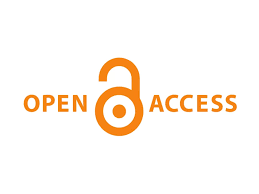About the Journal
“AL-Lisaniyyat" is an open access and double-blind peer-reviewed journal issued by the Scientific and Technological Research Center for the Development of the Arabic Language (CRSTDLA) in Algiers, Algeria. The main objective of “AL-Lisaniyyat" journal is to provide a platform for international scholars, academics and researchers all around the world to share recent findings in the fields of Linguistics and its related fields, and to exchange the knowledge with other languages by promoting interdisciplinary studies in these domains. Scope and Focus: “AL-Lisaniyyat" journal publishes original papers and review papers in the Linguistic fields of: General Linguistics - Applied Linguistics- Textual Linguistics - Computational Linguistics - Automatic Speech Processing - Discourse Analysis - Language and Neuro-Cognitive Acquisition - Language and Speech Pathology- Lexicography and Terminology- Teaching Arabic and Comparative Education of Languages- Morphology- Phonetics- Phonology- Semantics - Syntax – Semiology - Sociolinguistics- Translation - Automated Speech Therapy – Speech and Language Therapy – Psychological Linguistic Database Norms and other related fields “AL-Lisaniyyat" journal is published in both print and online version, in Arabic, English and French, on a Semi-annual basis.“AL-Lisaniyyat" journal is licensed under a Creative Commons Attribution-Non Commercial license (CC BY-NC 4.0)
Current Issue
Vol. 31 No. 2 (2025): v31i22025
The Opening
Volume 32 Issue 2 of the international peer-reviewed journal AL-Lisaniyyat, published by the Scientific and Technical Research Center for the Development of the Arabic Language, brings together a selection of high-quality studies reflecting the diversity of contemporary linguistic research. The contributions address a wide range of topics, including pragmatics, grammar, discourse analysis, language education, translation studies, sociolinguistics, and clinical linguistics.
This issue features studies on English language teaching at the primary level within the Algerian educational system, as well as research on speech and language intervention for deaf children with cochlear implants in Algeria, with a focus on pragmatic and prosodic competence. It also includes international contributions on literary translation, particularly strategies for translating rhyme and sound patterns in literary texts.
Additional articles explore lexicography, linguistic terminology, discourse analysis, and values and gender representation in educational materials. Overall, this issue highlights interdisciplinary approaches and methodological diversity in addressing current linguistic challenges.
We hope this issue offers valuable insights and contributes to the advancement of linguistic research across educational and communicative contexts.
Prof. Dr. G. Hamdani
Director of Al-Lisaniyyat Journal
Assistant Editor-in-Chief
Published: 2025-12-25
 Open Access Policy
Open Access Policy 
The journal "AL-Lisaniyyat" embraces an open-access policy that promotes unrestricted access to scientific knowledge. Under this policy, all content published in "AL-Lisaniyyat" is freely accessible to everyone via its website across all editions. This approach aims to facilitate and enrich the exchange of knowledge among researchers, both within and beyond academia.
This policy provides researchers with the opportunity to publish their work in the journal without any access barriers. It also enables researchers and readers to freely use and distribute the published research, allowing for copying without the need for prior permission or payment of fees.
Moreover, authors are not required to pay any fees for the submission, review, or publication of their manuscripts in the journal. This inclusive approach encourages greater participation from researchers and authors, fostering advancements in scientific research and scholarship.
